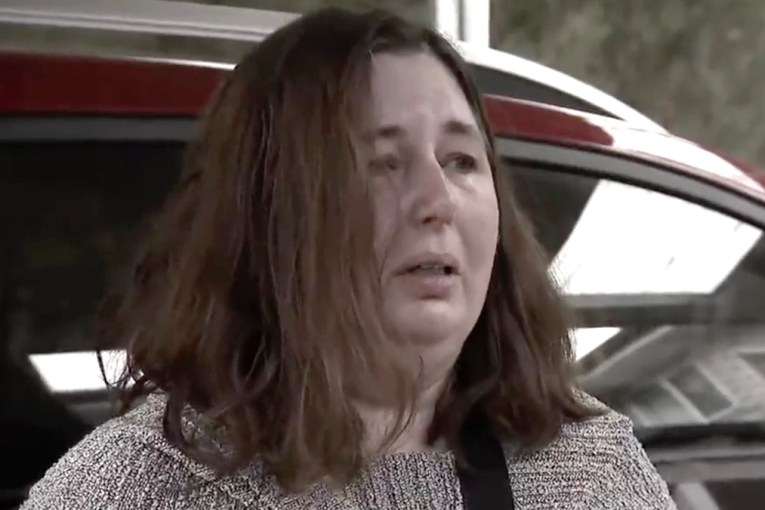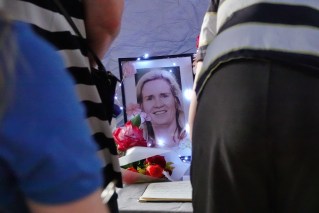Woman’s insurance fight over mental illness claims

The QBE Insurance logo is seen on an office building in Melbourne February 28, 2011. REUTERS/Mick Tsikas
A 21-year-old Melbourne woman is challenging insurance giant QBE over its blanket exclusion of mental illness in its travel insurance policy, in what could be a watershed legal case for the industry.
Ella Ingram, who developed depression when she was 17, was refused reimbursement for a 2012 school trip to New York, after she became too mentally ill to travel.
QBE’s travel insurance does not cover trip cancellation due to mental illness, even if the mental illness is not a pre-existing condition.
• Mental health impacting insurance
• How the falling dollar has ruined your travel plans
• Is your workplace good for your mental health?
QBE declined to comment to the ABC’s 7.30, and attempted to delay reports on the matter by pursuing an injunction, which was denied late on Monday.
However, documents submitted to the Victorian Civil and Administrative Tribunal by QBE show it will argue the company would suffer “commercial hardship” if it covered mental illness, because of the number of Australians who experience it.
Nearly one in two Australians will experience some form of mental illness in their lifetimes.
Tens of thousands of people affected by mental health exclusions
Insurers are permitted to refuse coverage on the basis of “reasonable statistic data”, but Ms Ingram’s lawyers will argue the blanket exclusion is unreasonable and that insurance companies should look at each individual case when deciding whether to provide coverage.
“Insurers should treat mental illnesses in the same way they approach physical illnesses,” said Melanie Schleiger, from Victoria Legal Aid, which is running Ms Ingram’s case.

QBE just one of many insurance companies with mental illness exclusions, say experts.
“So, looking at the illness on a case by case basis, considering the severity of the mental illness, the treatment that the person is receiving, how they’re responding to that treatment.”
Mental Health Australia (MHA) estimated “tens of thousands” of people are affected by mental illness exclusions, not only in travel insurance but also in income protection and life insurance policies.
A 2011 survey for MHA of people who had experienced a mental illness found 67 per cent of 424 respondents agreed it was difficult to obtain life and income protection insurance.
A soon-to-be published survey of 35 travel insurance policies by consumer group CHOICE found only two cover mental illness claims, and those policies both come with restrictions.
“Insurance companies seem to think that there are two kinds of people in the world, and if you’re one of the people with mental illness then you’re excluded from products that we all take for granted,” said Frank Quinlan, CEO of Mental Health Australia.
Exclusion disclosed 30 pages into policy document
Mr Quinlan said MHA has in the past been “flooded with responses from people who have been excluded insurance, have been questioned inappropriately or have been charged exorbitant rates for insurance that most people take for granted”.
One man who saw a psychologist for career counselling later found he could only get income-protection insurance if it excluded coverage for mental illness, despite never having experienced one, MHA’s 2011 survey reported.
Ms Ingram’s depression was diagnosed after she took out travel insurance for her New York trip.
The mental illness exclusion is marked in the policy’s terms and conditions, but Ms Ingram’s mother, Linda Darragh, admits she only read the first few pages of the policy.
“I got maybe two or three pages in, and thought, oh well, she hasn’t got any pre-existing illnesses, so I don’t really need to read the whole document,” Ms Darragh told 7.30.
The mental health exclusion was disclosed at around 30 pages into the document.
First claim of its kind heard by a tribunal
Ms Ingram had worked in a bakery part-time for two years to pay for the $4300 trip to New York, and both her parents had also contributed.
She said when she discovered she could not get the money back she felt “ripped off”, but she is not pursuing the claim for the money.

“It’s not about getting my money back anymore.” Photo: Getty
“It’s not about getting my money back anymore,” Ms Ingram said.
“I wanted to take it as far as it could when I found out how widespread this issue is and how many people it is affecting.
“It’s not just travel insurance, it’s people’s lives, it’s people’s incomes.
“They are being refused that just because they have a mental illness … I don’t think that it’s fair.”
Ms Ingram’s claim against QBE is the first to be heard by a tribunal, as previous claimants have settled out of court with insurance companies, and typically sign non-disclosure agreements.
Frank Quinlan, of MHA, said this is partially how the practice of excluding mental illness coverage has been able to go on.
‘I’m really encouraged that someone like Ella is prepared to take her case all the way and I think we’ll find that she’s breaking ground for so many other people,” he said.
The VCAT hearing begins on Tuesday.
-ABC








